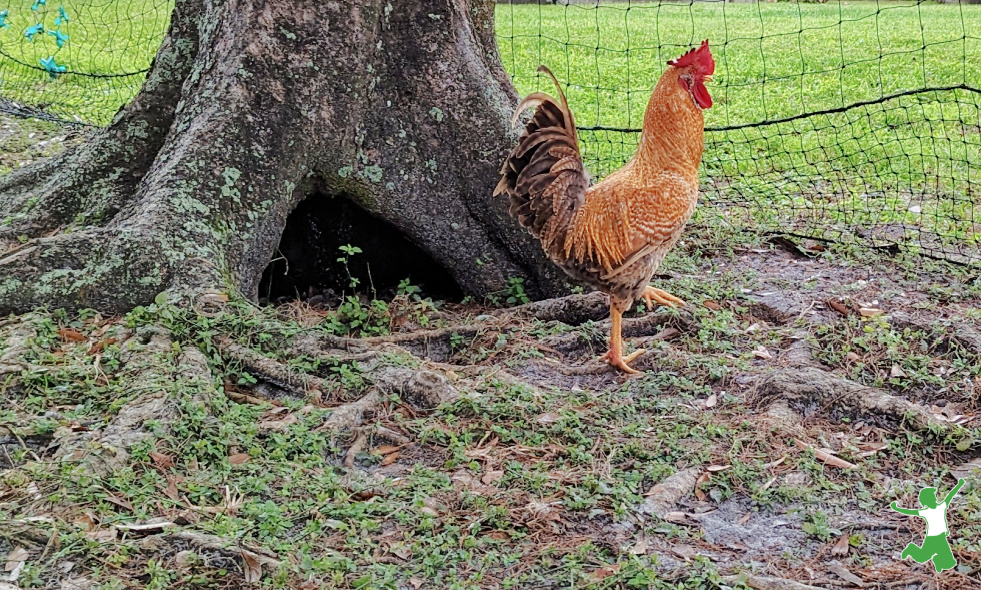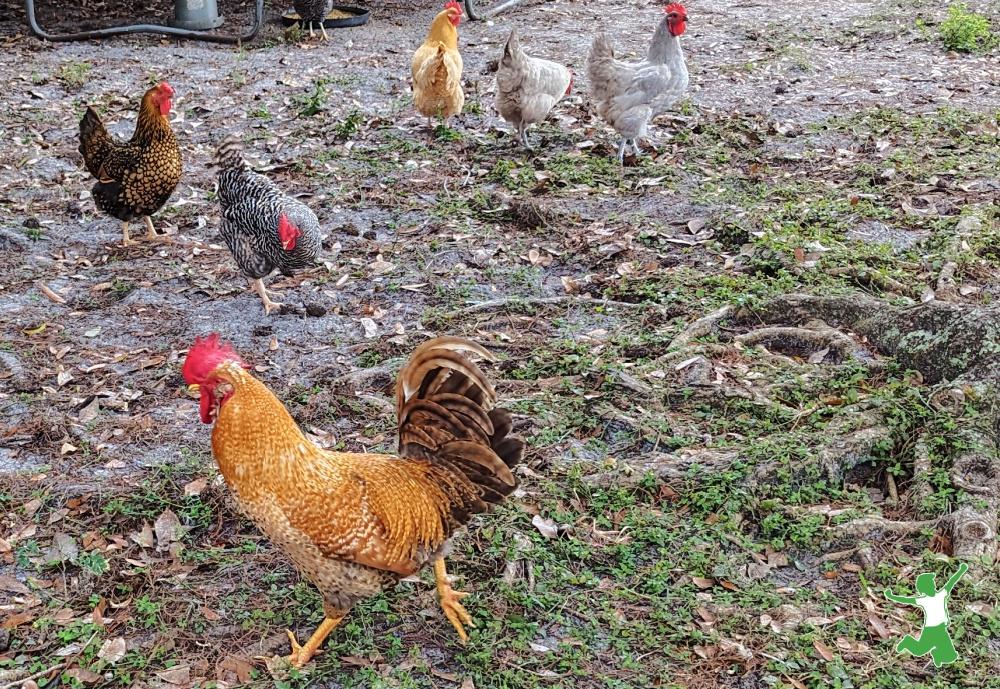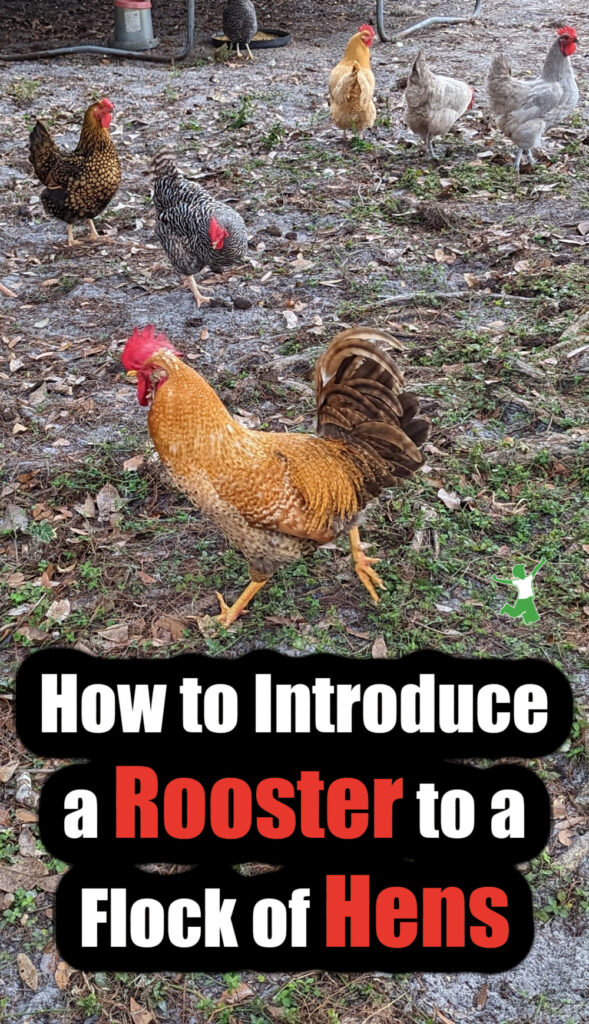
Table of Contents[Hide][Show]
The simple and straightforward process for choosing a cockerel or rooster to introduce to an existing flock of laying hens.

I’ve chronicled my backyard layer hen journey on this blog for the past 10+ years.
It’s been a fun and very successful endeavor, which has provided our family with top-quality eggs with minimal issues for over a decade.
Despite the old saying “if it ain’t broke, don’t fix it”, my husband and I recently decided to add a rooster to the mix…
The following reasons are why we made this major change after so many years:
- I want to hatch my own chicks to ensure the long-term viability of our flock without reliance on the increasingly dystopian chick hatcheries.
- Raising my own chicks from fertilized eggs to full-grown hens will produce healthier birds that are not traumatized by the medicalization of chick hatcheries and the inhumane shipping process.
- The watchful eyes of a rooster will help protect my hens from red-tailed hawks that have moved into our area over the past year.
- I want to take our home egg-laying operation to the next level of sustainability without any reliance on the commercial egg industry.
Choosing the Best Rooster
When you decide to get a rooster for your laying flock, it is very important to choose wisely.
I am fortunate to have a rooster sanctuary not far from my home.
This farmer takes in young cockerels from people who were raising chicks and inadvertently got a rooster instead of a hen from a feed store or hatchery.
Thus, I had the opportunity to observe numerous roos before I settled on Rocky (pictured above).
Rocky is huge, but very gentle and does not charge people (a common aggressive behavior to watch out for).
Because I was going to introduce Rocky to an existing flock of grown hens that had an established pecking order, a young cockerel or small rooster wasn’t going to cut it.
I needed a big guy who would be able to hold his own from day 1.
I also needed a large rooster who would be able to fend off hawk attacks on my girls. This has become an increasingly distressing problem for me over the past year (never was an issue in years past).
Even though Rocky is barely a year old, he fit the bill on all counts.
Is Quarantine Necessary? Yes and No
Many online sources will tell you that a two-week quarantine is necessary before introducing one or more new chickens to an existing flock.
However, the farmer who runs the rooster sanctuary told me that this was not necessary under some circumstances.
First, my flock was all hens with no existing rooster that would compete with Rocky.
He would be the alpha from the get-go.
Secondly, since he had cared for Rocky for many months and his chickens were all healthy (living in the same community as mine), I could introduce Rocky right away to the hens with very little to no chance of communicable illness.
Third, Rocky is huge and would be able to easily hold his own against any bullying tactics a cantankerous hen might try.
Introducing a Rooster to a Flock of Hens
After considering what Farmer Del told me, I decided to introduce Rocky immediately even though I already had a quarantine area set up for him as necessary.
I also decided to introduce him in the middle of the day instead of at night after all the hens were roosting as some sources recommended.
The reason for this was based entirely on Rocky’s size.
He was not going to get bullied, so sneaking him into the coop at night while the hens were asleep was not necessary.
How Did it Go?

Rocky’s introduction to my hens was nothing short of hilarious.
When I opened the travel cage and let him loose in the free-ranging area, the hens looked completely shocked and amazed.
They literally did not know what to do with themselves 😂
Rocky fit right in immediately. No ruffled feathers or feelings at all.
My one grumpy hen has tried to challenge him a couple of times, but Rocky’s large size keeps the situation under control without any worry.
In the coming weeks, I will be writing about my adventures with Rocky and the hens.
I am looking forward to collecting fertilized eggs to compare them with unfertilized eggs for taste and storage differences.
I am also excited to begin hatching my own chicks.
Stay tuned!
What is Rocky’s Breed?
By the way, if any of you have a clue about what Rocky’s breed might be, please let me know your thoughts in the comments below.
Farmer Dell thinks he is a blend.
My guess is an Orpington/Plymouth Rock mix?
